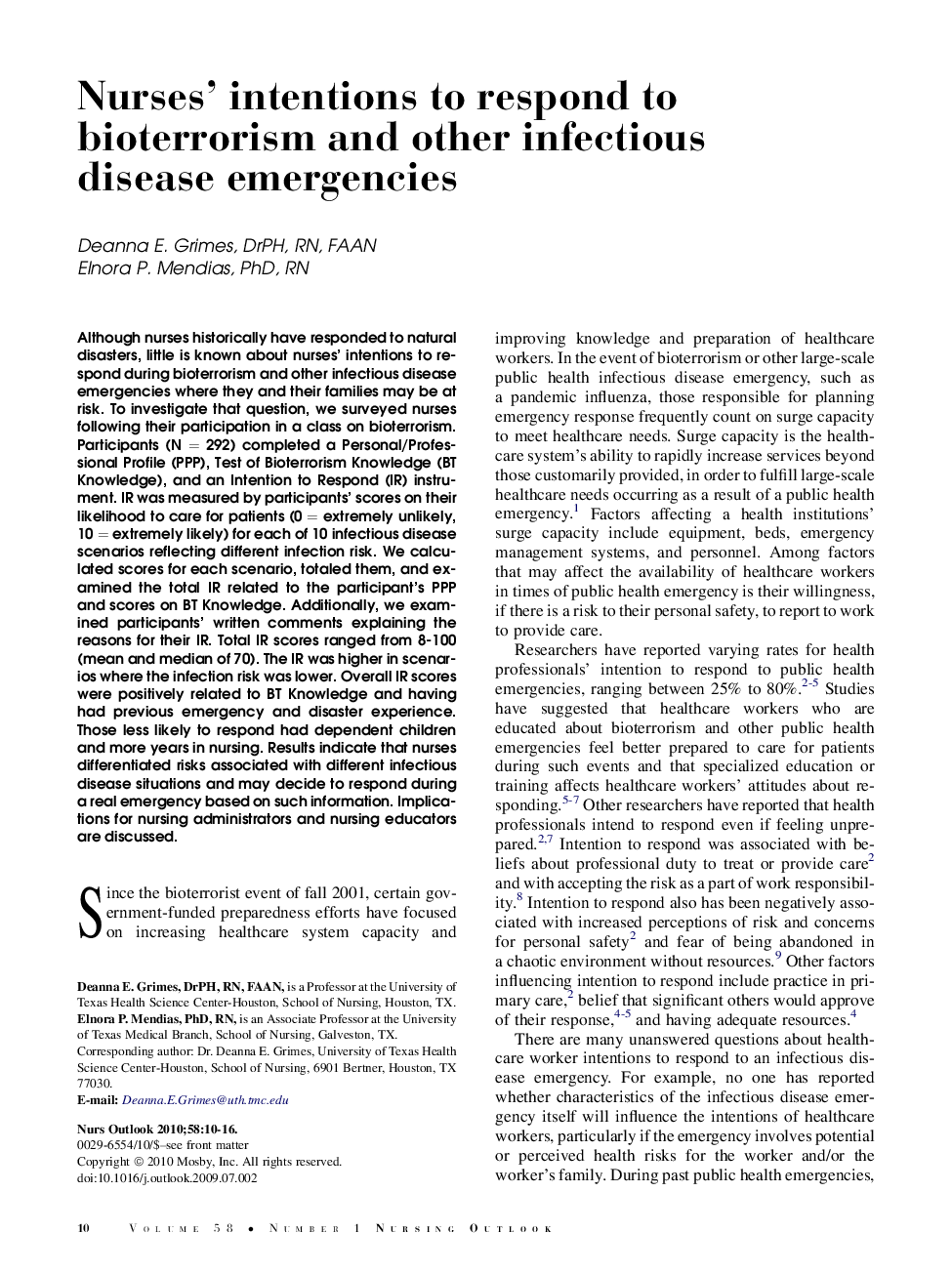| Article ID | Journal | Published Year | Pages | File Type |
|---|---|---|---|---|
| 2673535 | Nursing Outlook | 2010 | 7 Pages |
Although nurses historically have responded to natural disasters, little is known about nurses' intentions to respond during bioterrorism and other infectious disease emergencies where they and their families may be at risk. To investigate that question, we surveyed nurses following their participation in a class on bioterrorism. Participants (N = 292) completed a Personal/Professional Profile (PPP), Test of Bioterrorism Knowledge (BT Knowledge), and an Intention to Respond (IR) instrument. IR was measured by participants' scores on their likelihood to care for patients (0 = extremely unlikely, 10 = extremely likely) for each of 10 infectious disease scenarios reflecting different infection risk. We calculated scores for each scenario, totaled them, and examined the total IR related to the participant's PPP and scores on BT Knowledge. Additionally, we examined participants' written comments explaining the reasons for their IR. Total IR scores ranged from 8-100 (mean and median of 70). The IR was higher in scenarios where the infection risk was lower. Overall IR scores were positively related to BT Knowledge and having had previous emergency and disaster experience. Those less likely to respond had dependent children and more years in nursing. Results indicate that nurses differentiated risks associated with different infectious disease situations and may decide to respond during a real emergency based on such information. Implications for nursing administrators and nursing educators are discussed.
